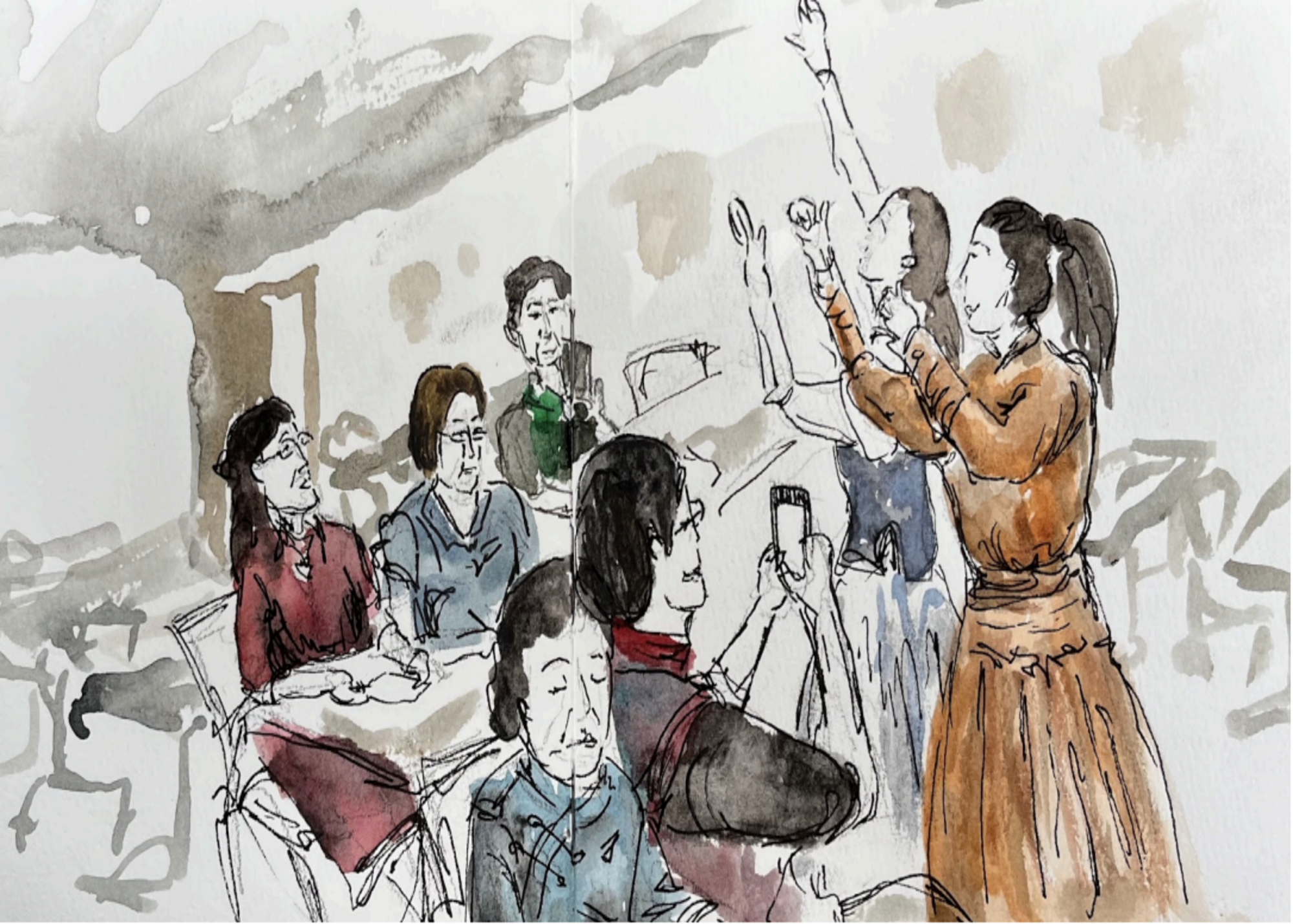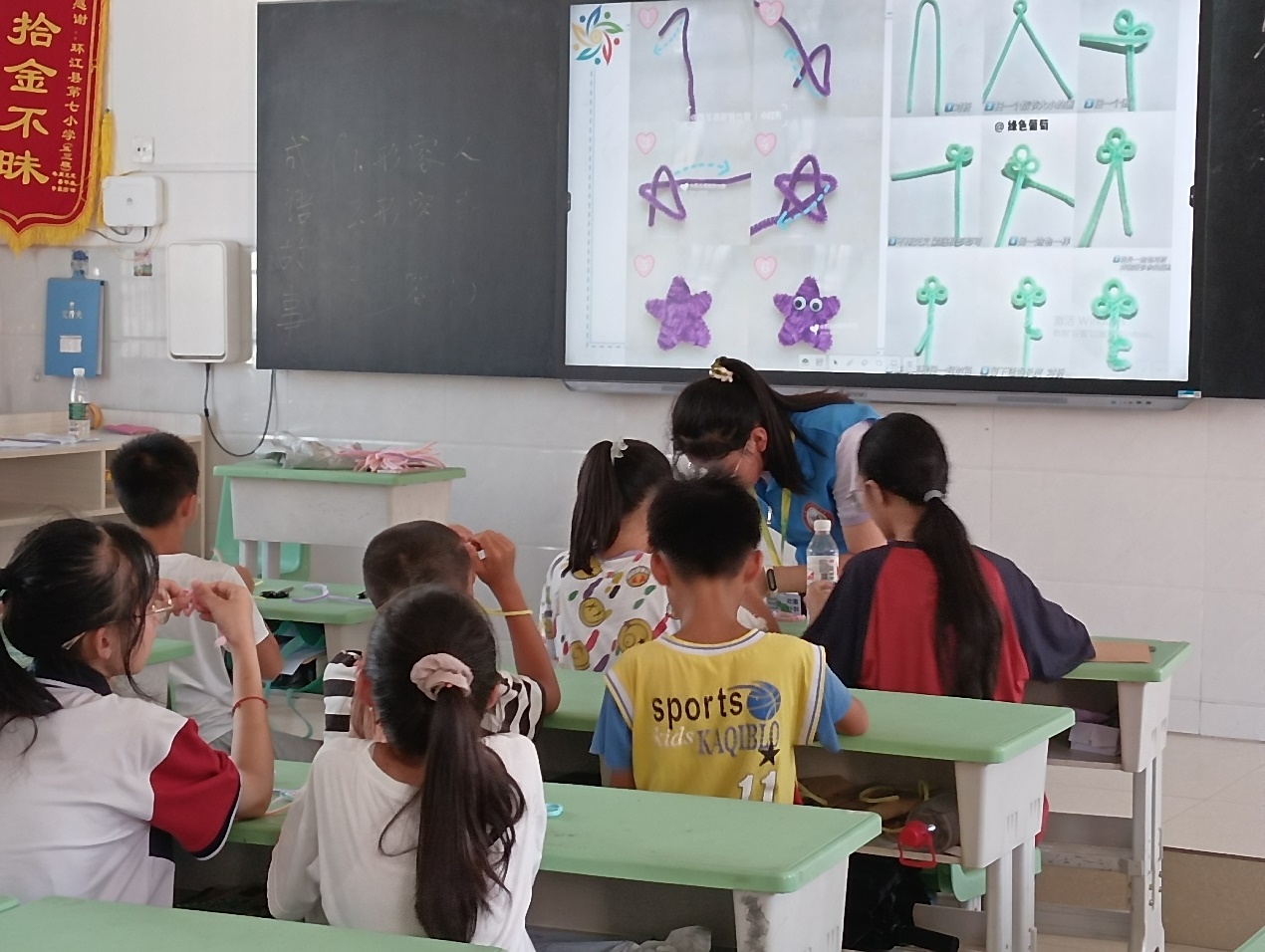Carousel

Understand the cultural, social and linguistic dimensions of education
We spend time learning from people around the world. Our program offers insight to better understand inequalities, cultural differences, linguistic diversity, and the wealth of human life for educational purposes. Our students become productive scholars, practitioners, and activists.

Fifth Conference on Anthropology and Education
We look forward to welcoming you to our 5th Biennial Conference “Anthropology, Education, Comparison” on October 10th & 11th. Registration and event details to be announced soon!

Anthropological Fieldwork at TC
TC Anthropology students engage in ethnographic fieldwork with communities around the world, from street vendors in New York City to elementary school classes in Beijing. Click here to take a look into their experiences.
Welcome to the Anthropology program
Anthropology is positioned to answer some of the toughest questions of education and policy-making because of its emphasis on spending time with and learning from people. Our program highlights participatory ethnography: engaging in and observing human activities and conversing with people as a means of improving education and collaborating with local groups and organizations. We offer one of the only master's programs in Anthropology and Education in the world and we offer a unique outlook on how to understand and support diverse approaches to education in and outside the classroom.
Our two doctoral programs help student develop the complex theoretical and methodological issues involved in the application of anthropological knowledge and approaches to matters of policy concern in medicine, psychiatry, psychoanalysis, economic and community development, education, businesses and corporations, institutional programs, and ecological and environmental change.
For more information about our faculty, course offerings, programs, and degree requirements, please view the Anthropology Program Handbook.
Photo Gallery
Click image to expand to full size.
Carousel
Open-air soccer court decorated with a wall mural completed by a local artist from the nearby Museum of Modern Art of Bahia. The mural features aspects of Afro-Brazilian culture blended with images of Afro-Bahian daily life. (A. Banks)
A variety of countries’ flags on the sidewalk in Astoria, Queens, New York. Students conducted ethnographic research on the overlapping themes of globalization, mobility, and education as they appear in the experiences of street vendors working in halal food trucks in New York City. (L. Coleman)
MA student Haley Planicka spent her summer in the Southern Arizona borderlands working with humanitarian organizations to help people seeking asylum as part of her research concerning disappearances, agency, and power along the US-Mexico border. (H. Planicka)
A volunteer from the Academic Center of the Beijing-Guangxi College Students Association teaches art to Grade 3 students at a Maonan County Primary School. This volunteer organization focuses on promoting rural-urban educational equality in China. (M. Guo)
The view from the front gate of the Instituto de Educacion Superior Pedagogico Pukllasunchis, a private school located in the San Blas district of Cusco that uses a bilingual and intercultural education model. (A. Burns)
Creations of art in the field became a form of seeing, as an anthropologist and as a person, for doctoral student Skylar Hou. Vespas have become the go-to mode of transportation for people in many cities in China. (S. Kaat)
Rural people from Sumapaz (Colombian Eastern Andes) who write without the direct guidance of any instructor and for decades have used to press their case about land property and political participation. (D. Rudas-Burgos and E. Guerrero)
The anthropologist with other young adults at play on an 'ultimate frisbee' field as they make their lives in Beijing, China (M. Zhang)
Re-imagining Germany and migration: a wall in Kreuzberg, a neighborhood in Berlin known for its nightlife, activists and artists, many from Turkey and from other Muslim countries. (B. Burnside)
A circle of Iranian seminarian (howzevi) women in Qom doing Mobaheseh, a daily practice of disputing Islamic edicts or Islamic text. The women use Manteq, an approach to disputation grounded in Aristotelian logic. (A. Tawasil)
Choose Your Degree
Use the tabs below to discover our degree programs.
The masters program in Anthropology and Education is concerned with the cultural, social and linguistic dimensions of education. Our program offers insight to better understand inequalities, cultural differences, linguistic diversity, and the wealth of human life for educational purposes. We examine educational processes in schools and classrooms, in families, on street corners, in community centers, in churches, and in all other non-conventional education settings.
The Doctoral Programs are research degrees designed to help students develop the complex theoretical and methodological issues involved in the application of anthropological knowledge and approaches to matters of policy concern in medicine, psychiatry, psychoanalysis, economic and community development, education, businesses and corporations, institutional programs, ecological and environmental change, etc. The programs lead to a Columbia degree and capitalize on the strength of the university's faculty.
Two doctoral programs are offered and differ slightly in their focus and the career paths for which they prepare.
- Doctor of Philosophy (Ph.D.) in Anthropology and Education - 75 credits
- Doctor of Philosophy (Ph.D.) in Applied Anthropology - 75 credits
The program in Anthropology and Education emphasizes theories of education and their uses in the analysis and planning of educational efforts in and out of schools. An Ed.D. in Anthropology and Education is also available under special circumstances.
News & Announcements
Announcements
Read Our Blog

Anthropology Blog
The Anthropology Programs at Teachers College, Columbia University
Suma Cheru (1st year Ed.M. student) on her work with unaccompanied migrant children, her role as Research Assistant, and the power of building community
Hi, my name is Suma Cheru. I’m pursuing my EdM in Anthropology and Education here at TC. I’m a queer second-generation South Asian originally from Maryland. Before joining TC this past Fall, I spent two years living along the US-MX border, where I worked directly with detained unaccompanied migrant children in US government detention facilities. […]
“Art in the Field:” Esther Fan, Skylar Hou, and Prof. Amina Tawasil brought anthropological research into SoHo gallery
The inaugural exhibition of ModA Curation, Being Human, took place in NYC’s soho district from March 14-20, 2024. On opening night, it attracted upwards of 200 people, including representatives of Forbes, Hyperallergic, Pace Gallery, and The Drawing Center. At this art show, members from the TCAnthro community participated as curator, artists, and presenter, bringing anthropology […]
TCAnthro students and faculty present at 2024 AES/APLA Spring Conference in Pittsburgh, PA
Programs in Anthropology are proud to share that students and faculty from our program presented at the American Ethnological Society & Association for Political Legal Anthropology (AES/APLA) 2024 Spring Conference at the University of Pittsburgh this weekend. Students in Prof. Amina Tawasil’s ITSF 5001 Ethnography and Participant-Observation (fall 2023) organized a flash ethnography panel to present […]
Follow us on Social Media
Tweet by @ {{item.user_screen_name}}
{{parseDateToFromNow(item.source_created_at)}} - View Post
Instagram Post by @ {{item.user_screen_name}}
{{parseDateToFromNow(item.source_created_at)}} - View Post
Facebook Post by @ {{item.user_screen_name}}
{{parseDateToFromNow(item.source_created_at)}} - View Post
LinkedIn Post by @ {{item.user_screen_name}}
{{parseDateToFromNow(item.source_created_at)}} - View Post
Admissions Information
Application Requirements
- Master of Education
- Doctor of Philosophy
- Master of Arts
- Doctor of Education